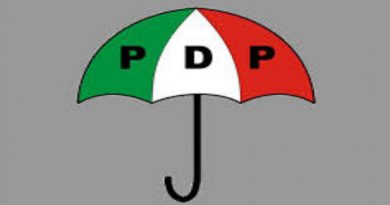As Tinubu approves ₦25,000 increment for low-grade workers, LCCI says $30 minimum wage extremely poor
President Bola Tinubu has approved a wage increment of ₦25,000 for workers in the country as part of efforts to lessen the hardship resulting from fuel subsidy removal.
The President announced this during his nationwide broadcast in Abuja on Sunday, October 1, 2023, as part of the activities to mark Nigeria’s 63rd Independence anniversary celebration.
Tinubu said the average low-grade worker would receive an additional ₦25,000 per month for the next six months.
“Based on our talks with labour, business and other stakeholders, we are introducing a provisional wage increment to enhance the federal minimum wage without causing undue inflation.
“For the next six months, the average low-grade worker shall receive an additional ₦25,000 per month,” he said.
This temporary measure will see the national minimum wage of Federal Government workers rise from ₦30,000 to ₦55,000 in the period stated by the President.
Tinubu also reiterated his administration’s commitment to relieving the hardship faced by Nigerians, adding that various measures had been taken by all tiers of government to mitigate them.
‘’There is no joy in seeing the people of this nation shoulder burdens that should have been shed years ago. I wish today’s difficulties did not exist. But we must endure if we are to reach the good side of our future.
‘’We have embarked on several public sector reforms to stabilize the economy, direct fiscal and monetary policy to fight inflation, encourage production, ensure the security of lives and property and lend more support to the poor and the vulnerable.
‘’To ensure better grassroots development, we set up an Infrastructure Support Fund for states to invest in critical areas. States have already received funds to provide relief packages against the impact of rising food and other prices,’’ the President said.
He added that other efforts were being taken by the government to touch all aspects that would impact directly on the lives of Nigerians to ease the pains of the new economic reforms.
Meanwhile on Saturday, the Lagos Chamber of Commerce and Industry (LCCI) asked the federal government to increase the country’s minimum wage to ameliorate the impact of the harsh reforms being initiated by the President Bola Ahmed Tinubu administration.
The call was in its statement on Nigeria’s Independence anniversary titled: ‘The Nigerian Economy at 63: Sustaining Reforms and Promoting Macroeconomic Stability,’ which was signed by its President, Dr. Michael Olawale-Cole.
He said: “LCCI recognises the impacts of the reforms on vulnerable workers and low-income earners. The chamber is of the view that there is urgent need to review the wage structure of Nigerian workers. At $30 for 30 days, the minimum wage is extremely poor.
“With high inflation rate, volatile exchange rate, low GDP growth, weak infrastructure, insecurity, etc., I call on the federal government to address the macroeconomic issues and the insecurity challenges facing the country.”
Olawale-Cole also observed that the country’s “business environment remains a concern to investors, especially in the real sector. Weak infrastructure, uncertain policy environment, and institutions have continued to adversely affect the efficiency, productivity, and competitiveness of many enterprises. These conditions pose a major risk to job creation, economic inclusion, and competitiveness, especially with the Africa Continental Free Trade Area (AfCFTA) agreement now in place.”
He said that “the way forward is to address the fundamental constraints to manufacturing competitiveness. In reality, job losses in the sector have increased over the decades as productivity declined on the back of the difficult operating environment.
“Our nation is at a crossroads and in dire need of big decisions to drive the drastic transformation the economy required to return to meaningful economic prosperity.”
The chamber recalled that the Central Bank of Nigeria (CBN) in its July 2023 MPC meeting increased the benchmark interest rate by 25 basis points to 18.75 per cent from 18.5 per cent and commented that “this consistent hawkish stance by the monetary authority is in response to the high inflationary pressure, consistent weakening in the value of the local tender, and developments in the global economy.”
The chamber also identified poor power supply, insecurity and weak infrastructure as major burdens on businesses in Nigeria.
It said power supply has been on progressive decline since 1960 when the country gained its independence from Britain.
“Power supply has consistently lagged behind the pace of economic activities and population growth. This development impacted negatively on investment over the past few years with increased expenditure on diesel and petrol by enterprises. This also comes with the consequences of declining productivity and competitiveness. With the frequent collapses recorded by the national grid, we can no longer rely on a centralised power source. The way to go is renewable energy and decentralising the national grid,” the LCCI said.
It also emphasised that the country’s security situation has deteriorated in the past year and has assumed a very worrisome dimension at the detriment of inflow of investments into the economy.
“Poor infrastructure particularly in the areas of road, rail, ICT, ports, etc. is a big challenge to Nigeria’s socio-economic development. The water and sanitation sector has inefficient operations, with low and declining levels of piped water coverage.
“Irrigation development is also low relative to the country’s substantial potential. Addressing Nigeria’s infrastructure challenges will require sustained expenditure of almost $14.2 billion per year over the next decade, or about 12 per cent of GDP.



